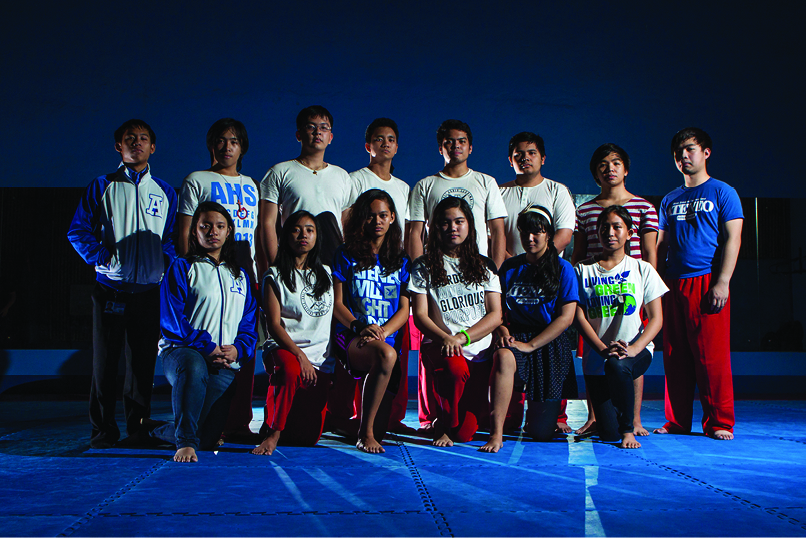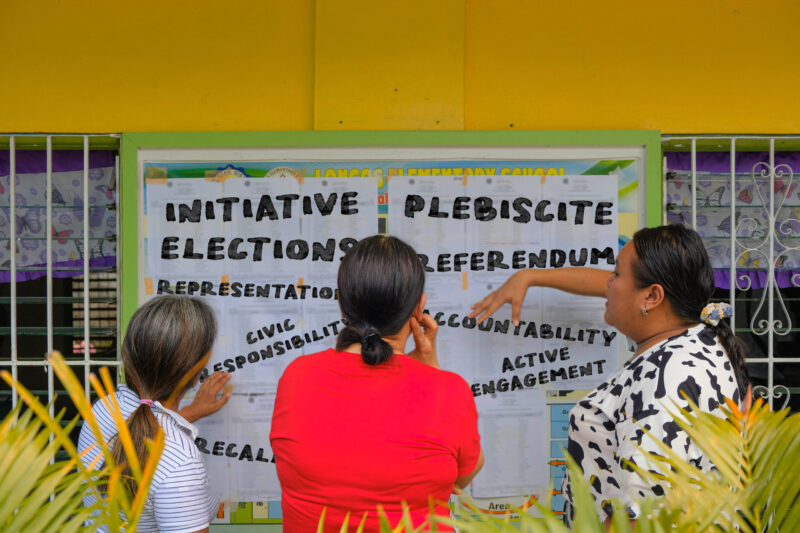WHEN ASKED to identify the Philippines’ national sport, many Filipinos, both young and old, will quickly respond, “Basketball.” Who could blame them? It’s easily one of the most viewed and popularly played sports in the country.
However, basketball is not, in fact, our national sport. The correct answer is actually Arnis, the country’s official national sport and martial art. This error has plagued the sport’s players, and it is a problem faced by the Ateneo’s very own Arnis team.
National sport
Arnis, also known in other regional languages as Eskrima, Kali or Garrote, is an indigenous martial art and sport that utilizes sticks or similar implements for striking, blocking and parrying for offense and defense.
Tracing its roots back to precolonial times, Arnis was considered a form of violence when the Spaniards arrived in the country. Due to the threat posed by the indios’ knowledge of combat, the colonizers prohibited the practice of the martial art.
It was only in the 1980s that the martial art began to regain the public’s attention. After gradually resurfacing in the national scene in the latter part of the 20th century, the sport recieved huge boost on December 11, 2009. On that day, Former President Gloria Macapagal-Arroyo signed Republic Act 9850, an act declaring Arnis the national martial art and sport of the Philippines.
Today, competitions in the sport are divided into two categories: Anyo (form) and laban (sparring). With anyo, players use sticks in performing various sequences of movements. Laban, on the other hand, features full-on combat with another player, though body contact is not necessarily required.
Ateneo Arnis Team
Even with its title as national sport and growing presence abroad, Arnis currently does not hold a spot in the lineup of sports present in the University Athletic Association of the Philippines (UAAP), the country’s premier collegiate athletic body.
Despite Arnis’ status as a non-UAAP sport, the Ateneo has not shied away from forming and housing its own team. What started as a club of enthusiasts eventually became the foundation of what is now the official Ateneo Arnis Team.
The team has grown in leaps and bounds since its inception back in 1995. The squad is currently composed of 20 members, most of whom started their careers because of the Arnis course that is offered by the Physical Education Department. The team also welcomes anyone who is willing to give the sport a try.
When asked why one should consider taking up Arnis, Men’s Team Captain TJ David is quick to come up with an answer, exhibiting his genuine passion for the sport. “Arnis is really fun plus you get to learn something new. In the process, you’ll realize that you barely have any limits. If you can think of it and you really push it, you can do it,” he explains.
The team practices the Kamao style of Arnis. Rooted in the Filipino term for “fist,” Kamao is a style where practitioners are able to apply their techniques even without the aid of weapons.
The art of discipline
To improve their performance, the Arnis team submits itself to an intense regimen of training sessions and workouts multiple times a week.
“We train three times a week from 4:30 to 7:00 PM at the Martial Arts Center,” shares David, a 12-year veteran of the sport who is now on his last year of eligibility to remain on the team. “Our workouts are divided into two sets: First is the strength and conditioning while the second part is mostly stick work.”
The team’s current roster of coaches is comprised of national team medalists and members of the inaugural squad, namely Ryan and Richard Gialogo and Aloy Diaz. Under the watch of these men, the team has been winning competitions all around the country. The team has bagged award from various independently organized tournaments, including Arnis Pasindo Eskrima, a tournament organized by Arnis Master Crisanto Pasindo.
Together with the players’ success on the mats are their achievements inside the classroom. Boasting three dean’s listers and a candidate for cum laude, the men and women of the Arnis team proudly note that, since deciding to take up the sport, they have noticed significant changes in their work ethic in and out of school.
“Discipline, time management and the value of hard work are the most important things we’ve learned from Arnis. In our team, we put emphasis on being students first before being athletes,” says David.
An act of patriotism
Various local organizations are constantly working to promote Arnis’ growth in the Philippines. The National Arnis Association of the Philippines, Kamao, Filipino Martial Arts and Arnis Philippines are all doing their part in spearheading the effort of promulgating the sport in the country.
With their efforts of engaging in and actively promoting the sport, the Ateneo Arnis Team is also doing their part to help the rest of the Philippines learn about and appreciate its official national sport and martial art.







